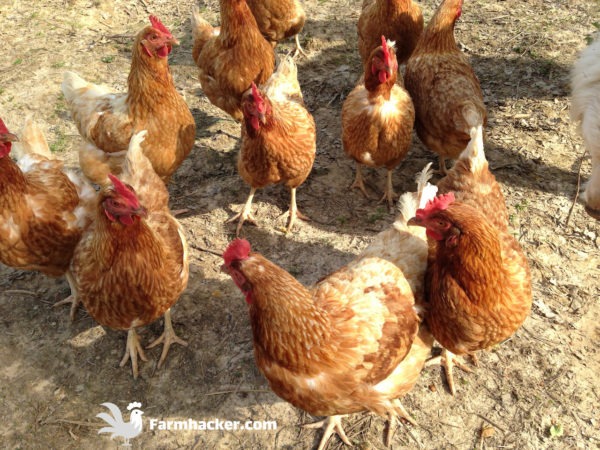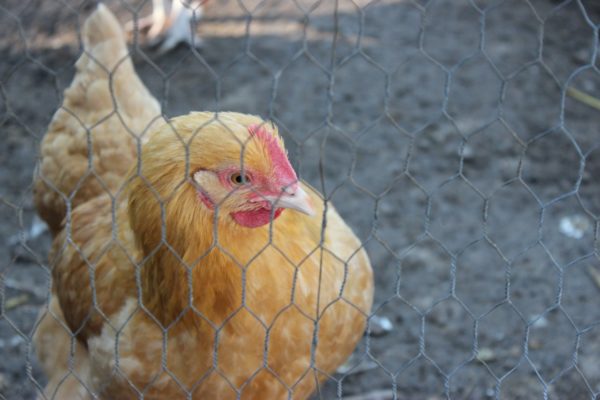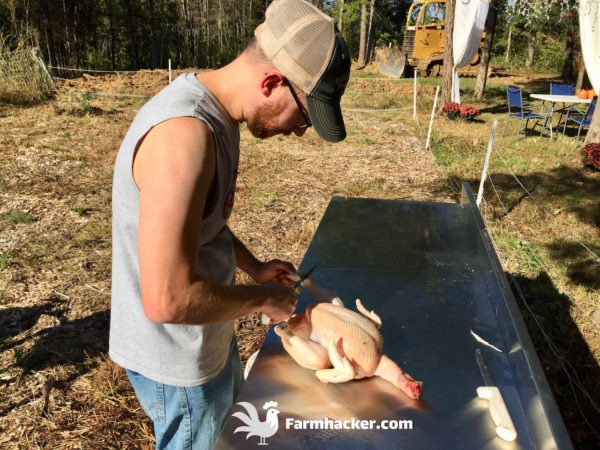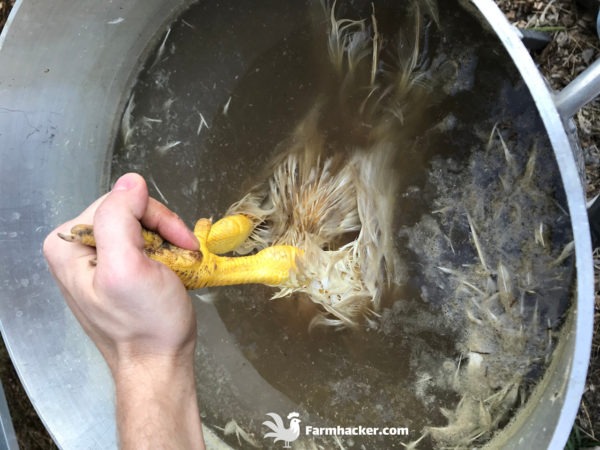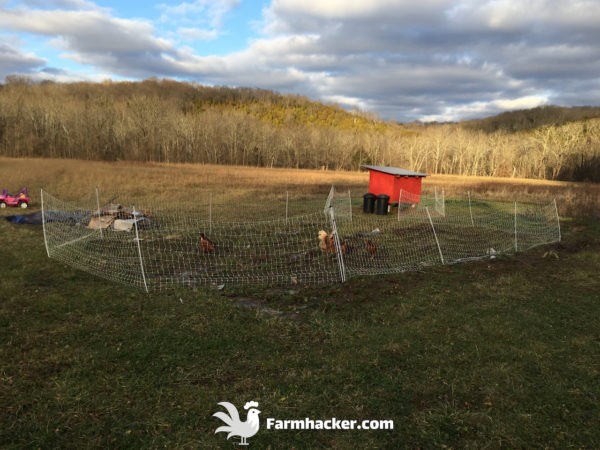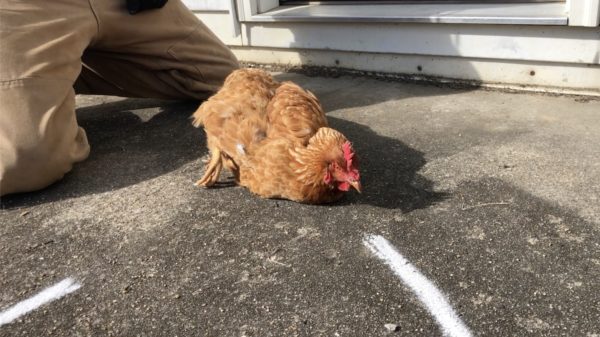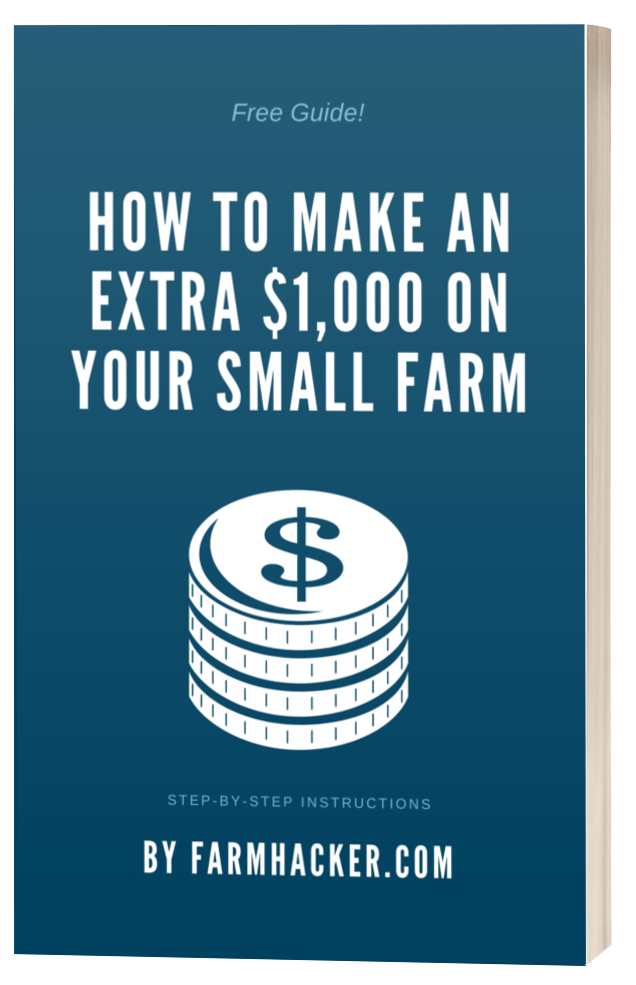Last Updated on January 10, 2023
Raising chickens can be a lot of fun. Not only that, they also produce delicious eggs and one of the most popular meats in the world. Whether you want to raise them on pasture, free-range, or in a backyard, I have written this guide for you.
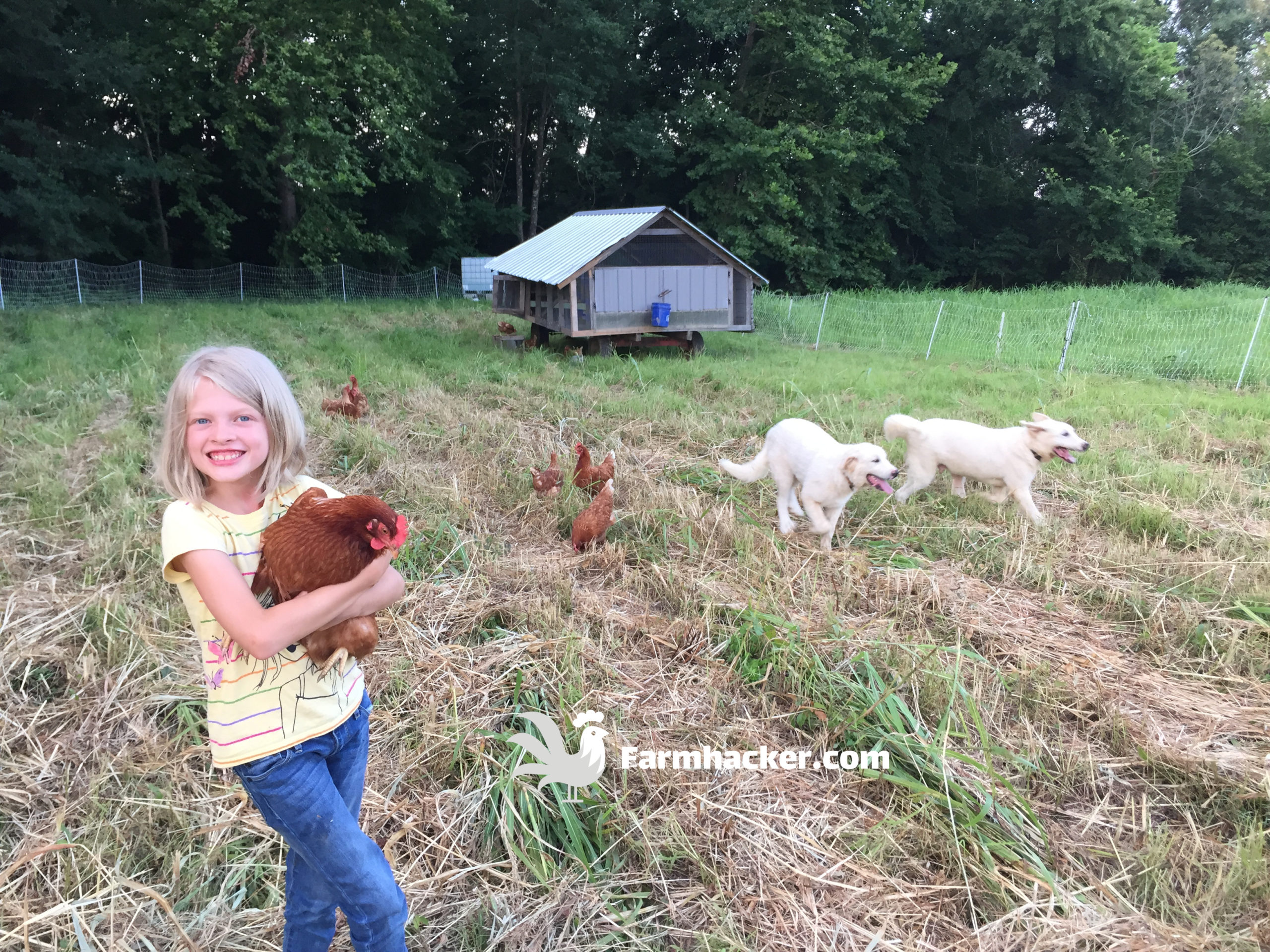
Introduction to Raising Chickens
Are you ready to start raising chickens? If the thought of doing so seems overwhelming, don’t worry. It’s really not as hard as it sounds. My hope is that once you are done with this guide you will have all the confidence you need to get started.
With that being said, I have written this guide using a Q&A style to hopefully answer each individual question about raising chickens that you might have.
In each section, I link to other articles I have written that cover certain topics more in-depth. Feel free to read those posts to learn more and then come back here to continue on.
My plan is to continually add new information to this guide. I’m treating it as an ever-evolving living document on raising chickens.
I truly hope this guide is helpful and provides you with all the information you’ll need to start raising chickens on your farm or in your backyard today.
Should I raise chickens?
Before you start raising chickens on your farm or in your backyard, you should determine what your goals are for raising chickens.
Do you want to raise chickens for eggs or meat? Do you want to hatch and sell a certain breed of chicken to other people?
Do you want to start an egg business or a poultry business? Or do you just want to raise them for yourself?
The goals you have for raising chickens will greatly determine how much space you need, what breed of chickens you’ll need, and which type of setup you’ll need for them.
I will be sharing everything I know about this and more in each of the following sections. Hopefully, you’ll have a good understanding about what you’ll need in order to achieve these goals when you are finished with this guide.
What type of chickens should I raise?
Most people primarily raise chickens for two reasons. One is for eggs and the other is for meat. Sometimes this is to sell and sometimes this is just for them and their family to consume.
I have personally raised chickens that fall into both of these categories. I have raised chickens out on pasture in a mobile coop, meat chickens in mobile chicken tractors, and even backyard chickens in a stationary coop.
I have raised chickens for eggs and meat for my family and have also raised it to sell to other people.
If you only want to raise chickens for eggs then the way you raise them will be completely different than if you are raising chickens for meat. They both require different types of coops and setups.
If you are raising pastured or free-range egg layers for a chicken egg business, you will need lots of space because you will be moving them around. But if you are raising backyard chickens for yourself, you won’t.
Keep all of this in mind as we dive into each of the questions below.
What breed of chickens should I raise?
Layer Chicken Breeds
If you only want to raise egg layers, my absolute favorite chicken breed is the Novogen. Our Novogens always lay very consistently, are very hardy, and live a long time.
If you can’t find Novogens and would rather buy your chickens locally, I also like Rhone Island Reds, Production Reds, Barred Rocks, and Golden Comets. These are all good layers and are hardy chickens.
Layer chicken breeds typically take around 5 or so months before they start laying. Keep this in mind when starting out.
You can buy baby chicks and raise them to laying age. We will talk more about how to do this later. However, another option is to buy pullets.
Pullets are young hens that haven’t started laying yet. The great thing about buying pullets is that you don’t have to spend months waiting for the chickens to be ready to start laying. They are typically sold right before they start laying so all the hard work has been done for you.
The last several batches of chickens I have bought were pullets. If you have an egg business then this is a fast way to replenish your laying stock or to start faster when you are starting out.
If you have kids, I highly recommend raising baby chicks at some point just so they can be a part of the process of seeing them grow. Our kids have a blast raising baby chicks.
Meat Chicken (aka Broilers) Breeds
Did you know that meat chickens (aka broilers) are primarily made up of one breed in the U.S. and layer chickens primarily make up the rest?
Almost all chicken that you eat in the U.S. comes from a type of chicken called the Cornish Cross. This breed of chicken is a cross between a commercial Cornish chicken and a White Rock chicken. The result is a super fast growing chicken that is ready to eat in about 6 to 8 weeks. They have broad breasts, big thighs, and tender meat.
Because Cornish Crosses grow so fast, they sometimes have leg problems or other health issues. They also like to lay on their breasts a lot rather than continually moving around and foraging.
Almost all other chicken breeds grow slower and their meat is tougher than the Cornish Cross. Because of this, most Americans are used to this type of chicken meat and prefer the taste of a Cornish Cross.
There are alternatives such as the Freedom Ranger chicken. I have personally raised this breed as well. It takes them about 9 to 11 weeks to reach full weight. They don’t seem to have leg problems like the Cornish Cross do but their meat is a little tougher in my experience.
Choosing between these two (or other breeds of broilers) will largely depend on the type of chicken you want to consume or the type of chicken your customers prefer. Some customers might not like the tougher style of meat.
Because of this, I have stayed with raising Cornish Cross on my farm.
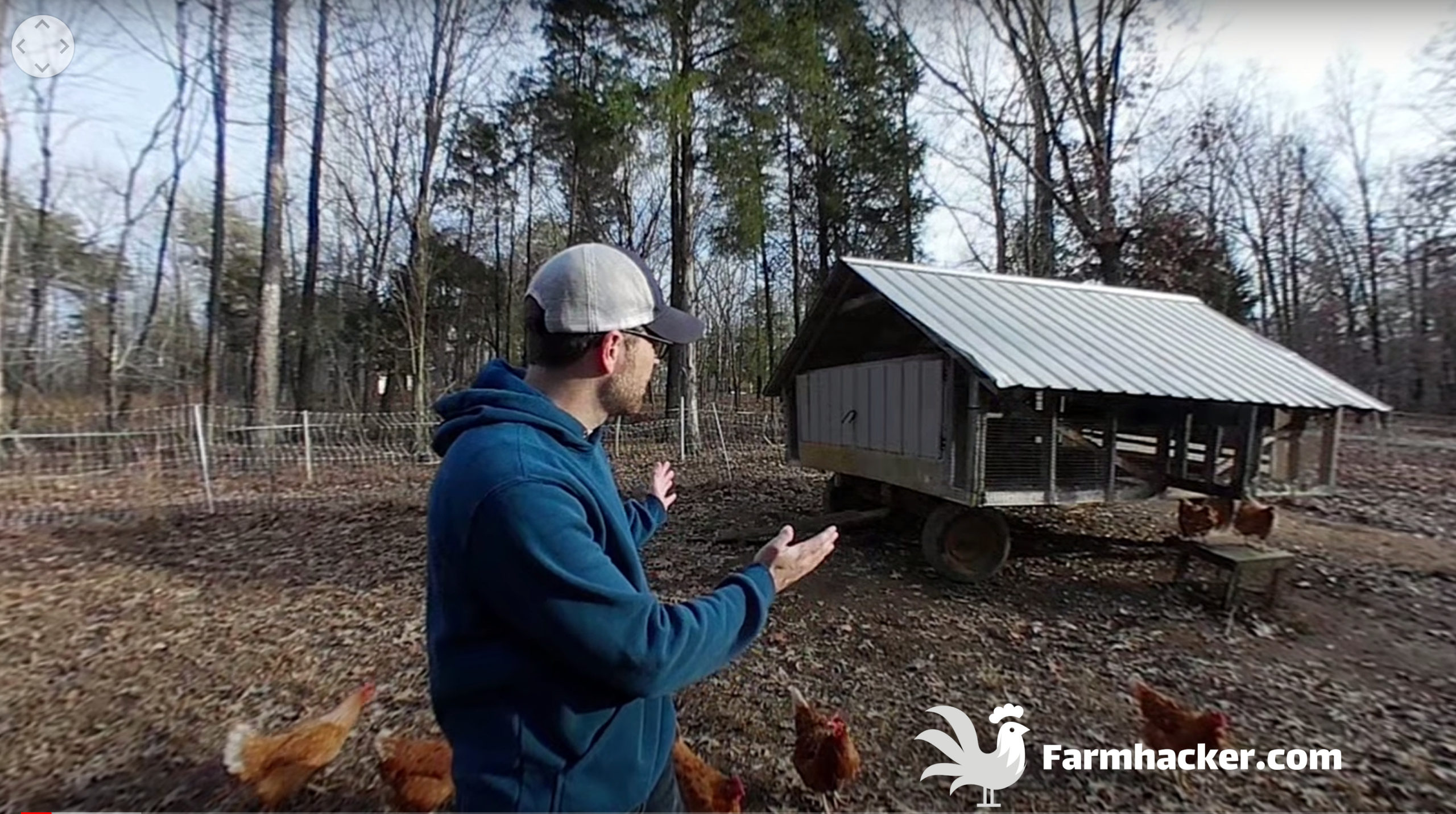
What kind of chicken coop do I need?
The type of chicken coop you need will depend on the type of chickens you are going to raise, how you are going to raise them, and the total amount of chickens you plan on having.
If you are going to raise a lot of egg layers out on pasture for an egg business then I highly recommend that you use a mobile chicken coop. A mobile chicken coop will allow you to rotate your chickens around your pastures so that they can forage in a new spot once they’ve exhausted the previous one.
Check out this article on How to Build a Joel Salatin Style Eggmobile Mobile Chicken Coop to learn how to build one and how to use type of chicken coop.
If you are going to raise pastured meat chickens then I highly recommend that you use a chicken tractor. A chicken tractor allows your meat chickens to forage in a new spot every day while being protected from predators.
Check out this article on How to Build a Joel Salatin Style Chicken Tractor to learn how to build one and how to use a chicken tractor.
If you just want to raise a small flock of egg laying chickens or backyard chickens for yourself then any standard chicken coop will work. Check out this article on The Best Chicken Coops to help you pick out the one that will work best for your chickens.
In the winter, chickens tend to lay less, especially when they are cold. One way to solve this is to use a chicken coop heater. Check out this article on The Best Chicken Coop Heaters to find one that works well for your coop.
Also, putting your chickens in a greenhouse in the winter can help keep them warm and encourage them to lay more. Check out this article on How to Heat a Greenhouse With Chickens and Compost to see how this could work for you.
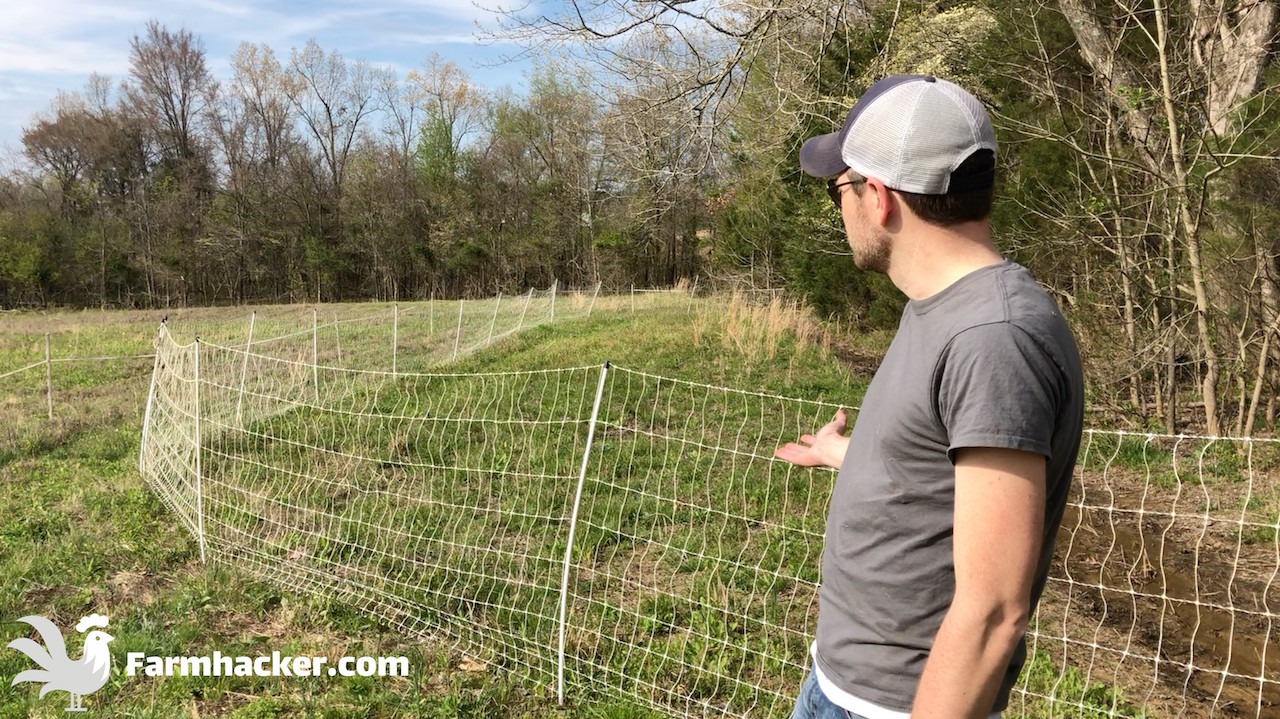
What kind of chicken fence do I need?
The type of chicken fence you need will again depend on what type of chickens you are planning on raising.
My favorite kind of chicken fence is poultry netting. It is portable and can be used to move chickens around so they can forage in new areas.
It works really well with a mobile chicken coop but you can use it with stationary and backyard chicken coops as well. It’s also electric so it is really good at keeping predators out. Check out this article on The Best Poultry Netting Fences to see which kind works best.
If you want to build a more permanent chicken area for a stationary or backyard coop then you can use metal chicken wire with t-posts or more permanent wood posts. Check out this article on The Best Chicken Wire Fences to learn more.
If you are raising meat chickens then I recommend using the chicken tractor I shared in the previous section. If you build one of those then you won’t need a fence because the chicken tractor itself keeps the chickens in and the predators out.
Another option for predator defense is to use livestock guardian dogs. We use 2 Great Pyrenees that live with our chickens and protect them. Since having them, we’ve never lost a chicken to a predator.
If you want to learn more about this then check out this article on Training Great Pyrenees to Guard Chickens. I even have a video in that article where you can see ours in action.
What kind of chicken feed do I need?
There are typically 3 types of chicken feed to choose from. This includes starter, grower, and layer. You can probably guess what each type of feed is used for.
Within each of these types of feed you can also get conventional, non-GMO, and organic feed. There is even medicated and non-medicated feed.
Personally, I buy non-GMO feed because that’s what my customers prefer and that’s what I prefer. I would buy organic but it’s too expensive and hard to find in my area.
I also recommend non-medicated feed. Medicated feed is more for chickens raised in overcrowded chicken houses.
I keep my chickens rotated in pastures so I never have an issue with them getting sick. And if you do the same then you will probably have the same results.
Also, constantly medicating your chickens can lead to other issues, especially if you are consuming the meat and eggs they produce. I personally don’t want to ingest that if I don’t have to.
If you are raising baby chicks, you’ll want to start them out on starter feed. As far as how long you should keep them on starter feed, follow the feed manufacturers recommendations.
For egg layers, this might be somewhere around the first 6 weeks of their life and then switching them to grower. For Cornish Cross meat chickens, this might be more like the first 2 to 3 weeks of their life and then switching them to grower.
If you are raising egg layers, you’ll want to feed them layer feed as soon as they start laying. Check out this article on The Best Chicken Feeds for Layers to learn more.
If you are raising meat chickens, you will keep them on grower until they are ready to be butchered.
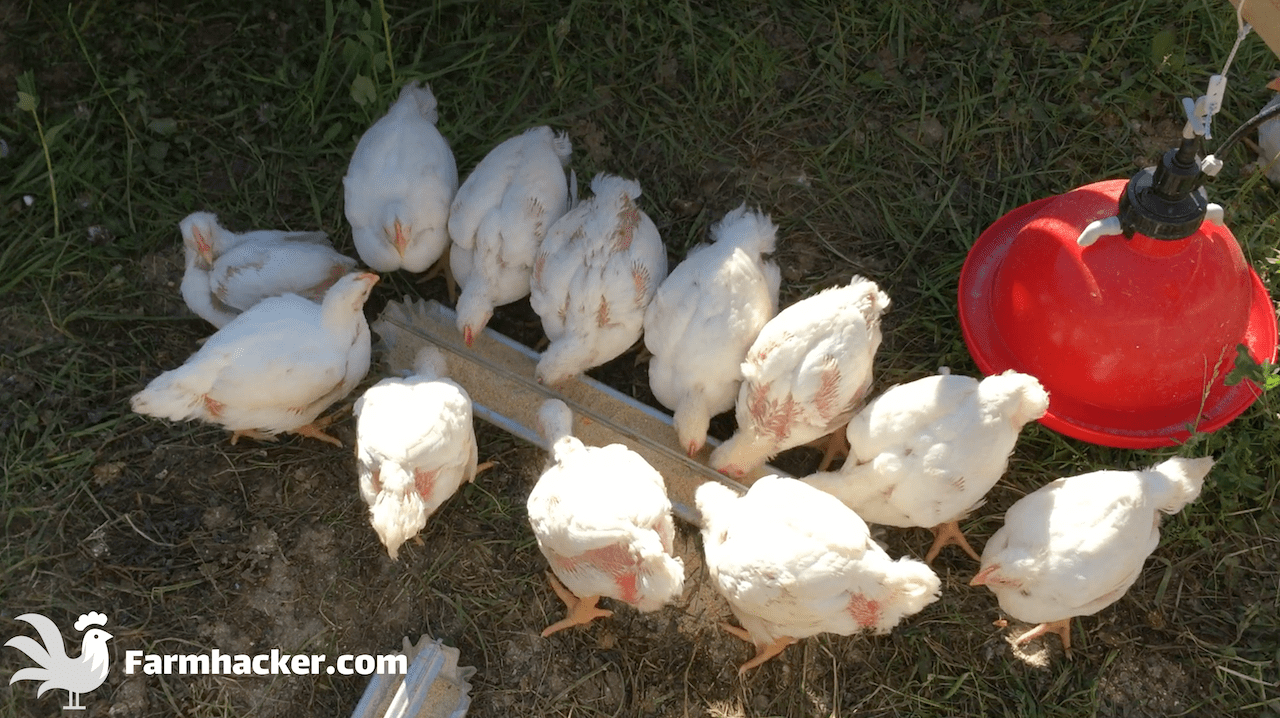
What kind of chicken feeder do I need?
For pastured chickens, I prefer the tray style chicken feeders. I schedule feed my pastured chickens because I want them to focus more on foraging. The tray style feeders allow a lot of chickens to eat at the same time.
For backyard chickens or a more stationary setup, a fillable feeder can be a good choice. The more the feeder holds, the less time you will have to spend continually filling it up.
To help you decide which chicken feeder is best for your setup, check out this article on The Best Chicken Feeders.
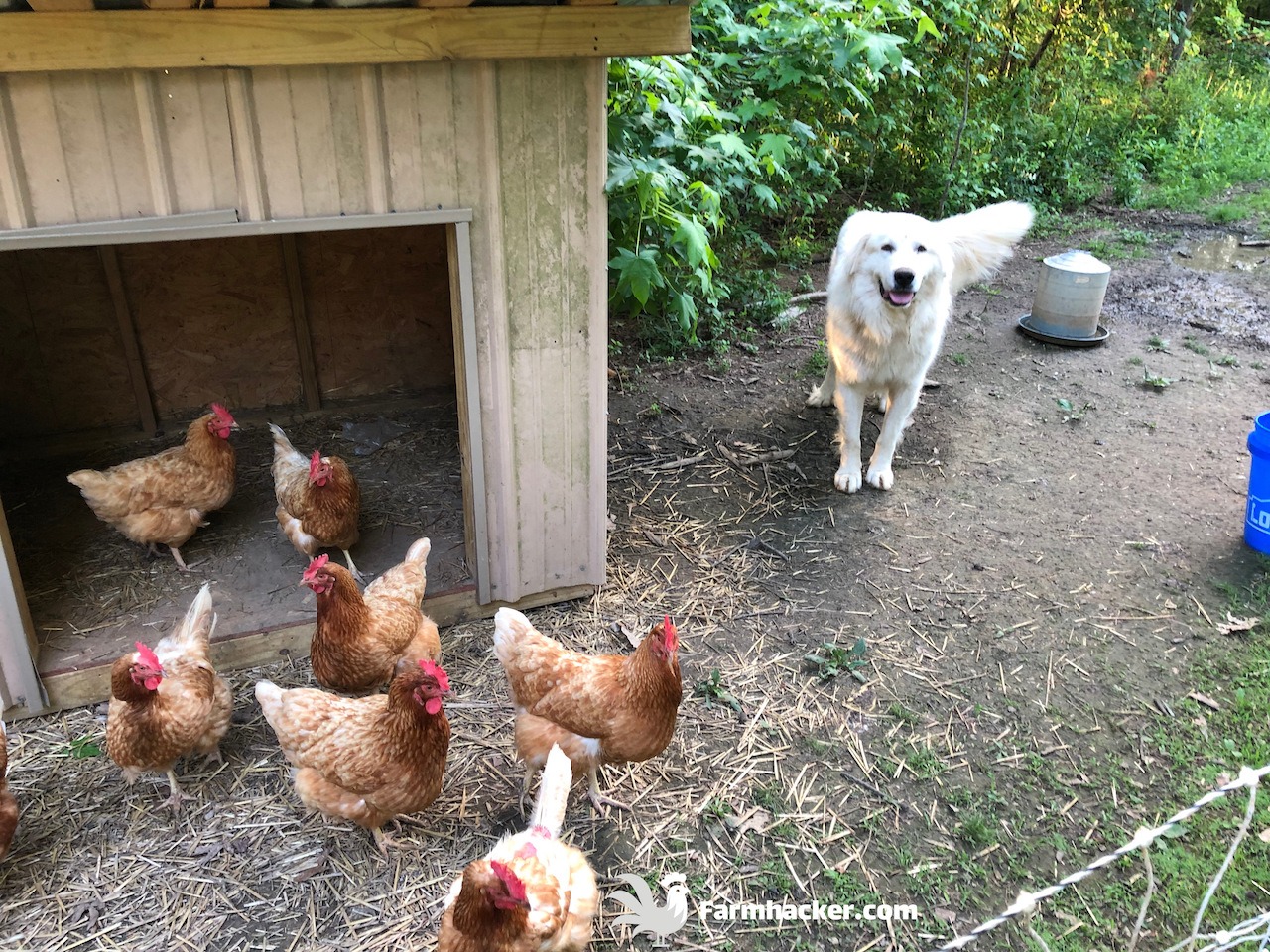
What kind of chicken waterer do I need?
For pastured chickens, you will need a waterer that can hold a lot of water, is portable, and is tough since it will be moved a lot. It’s very important that your chickens don’t run out of water, especially on hot days.
For backyard chickens, you can buy a wall mountable waterer or build a DIY stationary waterer since your chickens won’t be moved around. You can even mount a waterer to the side of the coop itself.
Check out this article on The Best Chicken Waterers to find the waterer that will work best for the way you plan on raising your chickens.
In the winter, frozen water can be one of your worst enemies. I highly recommend purchasing some type of heated water system so you will keep your sanity and your chickens can stay hydrated even on the coldest of days.
Check out this article on The Best Heated Chicken Waterers to help you find the best one for your setup.
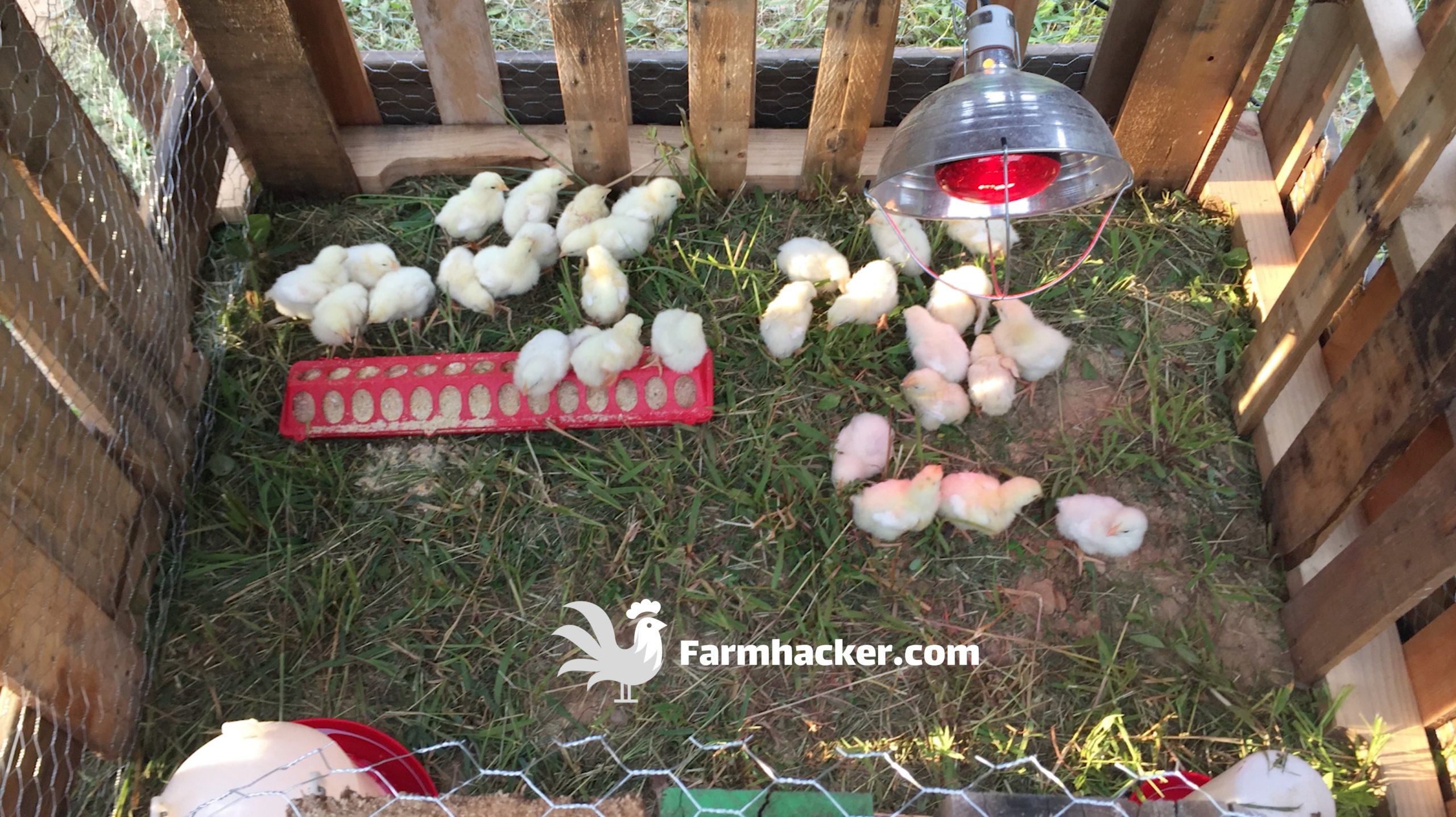
What do I need for raising baby chicks?
If you plan on hatching chicken eggs yourself, conditions for the eggs need to be just right.
It takes a chicken egg about 21 days to hatch. During this time they need to have a constant temperature between 99 and 102 degrees Fahrenheit or roughly between 37.5 and 38.5 degrees Celsius.
The humidity level needs to be around 50 percent for the first 17 days and then raised to around 70 percent for the remaining days before hatching.
Having a good egg incubator can make this process much easier. It will not only keep the temperature constant, but will also rotate the eggs for you ensuring the entire egg gets the correct temperature.
Check out this article on The Best Egg Incubators to find an incubator that will make this process much easier for you.
Once the baby chicks have hatched, you will need to keep them in a chicken brooder until their feathers come in. A chicken brooder is designed to keep the chicks warm and provide them with everything they need as they grow.
Chicken brooders are actually pretty easy to build. Check out this article on How to Build a Chicken Brooder out of Almost Anything to see the step by step process and to help you find the things you’ll need to build your own.
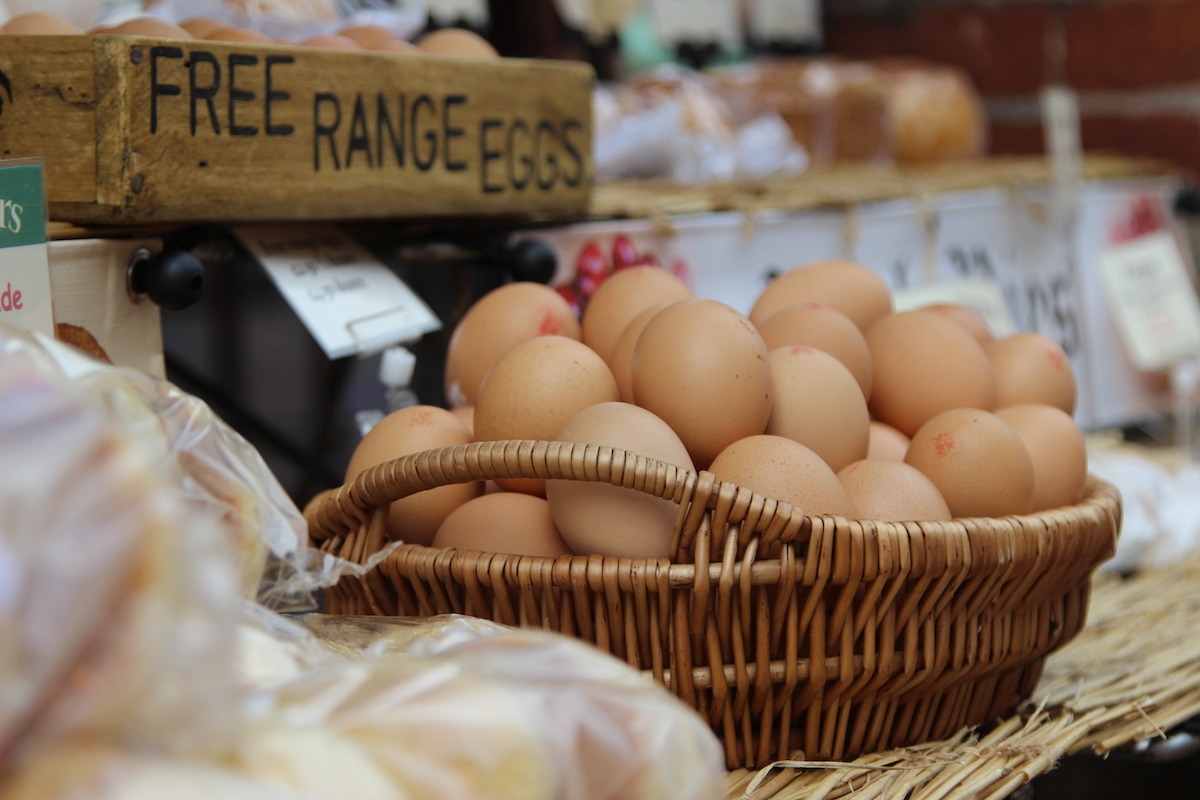
How do I sell chicken eggs?
The great thing about selling chicken eggs is that almost everyone likes to eat them. The hard part is that most people buy their chicken eggs at the store.
That doesn’t mean that you can’t make a business out of selling eggs though. In fact, I’ve sold eggs for years. The question that you need to answer is what makes your eggs better than the ones that can be bought at the store.
For us, our eggs are from free-ranged and pastured chickens which means they have a very diverse diet and the chickens live a much healthier life. When we supplement them with feed, we feed them non-GMO and non-medicated feed which is what our customers prefer.
The eggs are much healthier for you and we use our chickens to steward the earth well by utilizing the manure fertilizer they produce to increase pasture health and ultimately create better soil.
To learn more about this and dive into the math of how to make a profit with chicken eggs, check out this guide on How to Make Money Selling Eggs on Your Small Farm.
Also, you’ll need to make sure you have some good egg cartons when you start selling eggs. Check out this article on The Best Egg Cartons for a Chicken Egg Business to help you pick out the right ones.
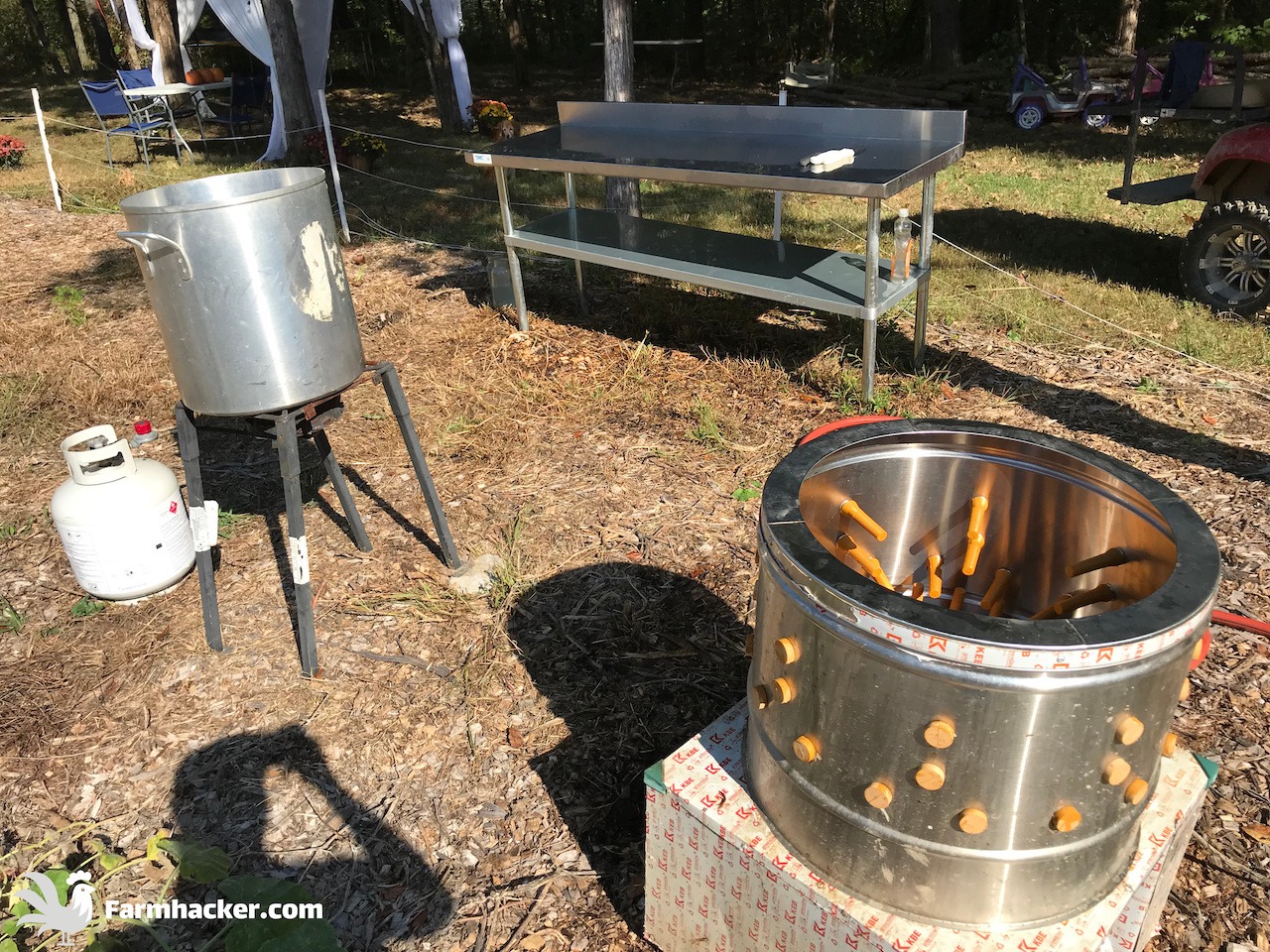
What do I need to butcher chickens?
When you are ready to butcher chickens, you will need several tools to make the job easier.
The first thing you’ll need is a good set of poultry knives. Check out this article on The Best Poultry Knives for Butchering Chickens to find the best one.
Next, you will need chicken killing cones to help you hold the chickens in place during the butchering process. Check out this article on The Best Chicken Killing Cones to make sure you get the right ones and learn more about how to use them.
You will then need a scalder to help loosen the feathers so you can begin the plucking process. Check out this article on The Best Chicken Scalders to make sure you get everything you need and to learn more about the scalding process.
And lastly, if you plan on butchering a lot of chickens then I highly recommend that you buy or build a chicken plucker. A chicken plucker can defeather two chickens in about 30 seconds verses plucking one chicken for 5 or more minutes by hand.
Check out this article on The Best Chicken Pluckers to learn which one is best for you and how to use a chicken plucker as well.
How do I sell chicken meat?
If you want to sell chicken meat then you need to answer the question what makes the chicken meat you raise better than what someone can purchase at the store?
For us, we pasture our broilers which means they are not crowded into an unsanitary, overcrowded chicken house. Instead, our chickens forage which means they have a much more diverse diet a live a much healthier life. We feed our chickens non-GMO and non-medicated feed which is what certain people want.
Pastured chicken meat that is raised like this can be sold for a decent price and can be profitable.
In the U.S., the laws around selling chicken meat that is butchered on your farm vary state by state. Some states have adopted a USDA federal exemption that allows farmers to either butcher and sell 1,000 chickens on farm or 20,000 chickens on farm. Each state has a different set of guidelines you must follow as well.
Some states do not adopt this exemption at all. In those states, you have to take your chickens to an off-farm USDA inspected poultry processor.
I recommend checking out the Farm to Consumer Legal Defense Fund’s Poultry Processing Laws Chart to learn more. This will give you a good idea about what your state allows as far as selling chicken meat that is processed on farm.
I also highly recommend joining the Farm to Consumer Legal Defense Fund if you plan on selling any products you produce from your farm. They offer invaluable guidance as you try to follow all the laws that surround food production.
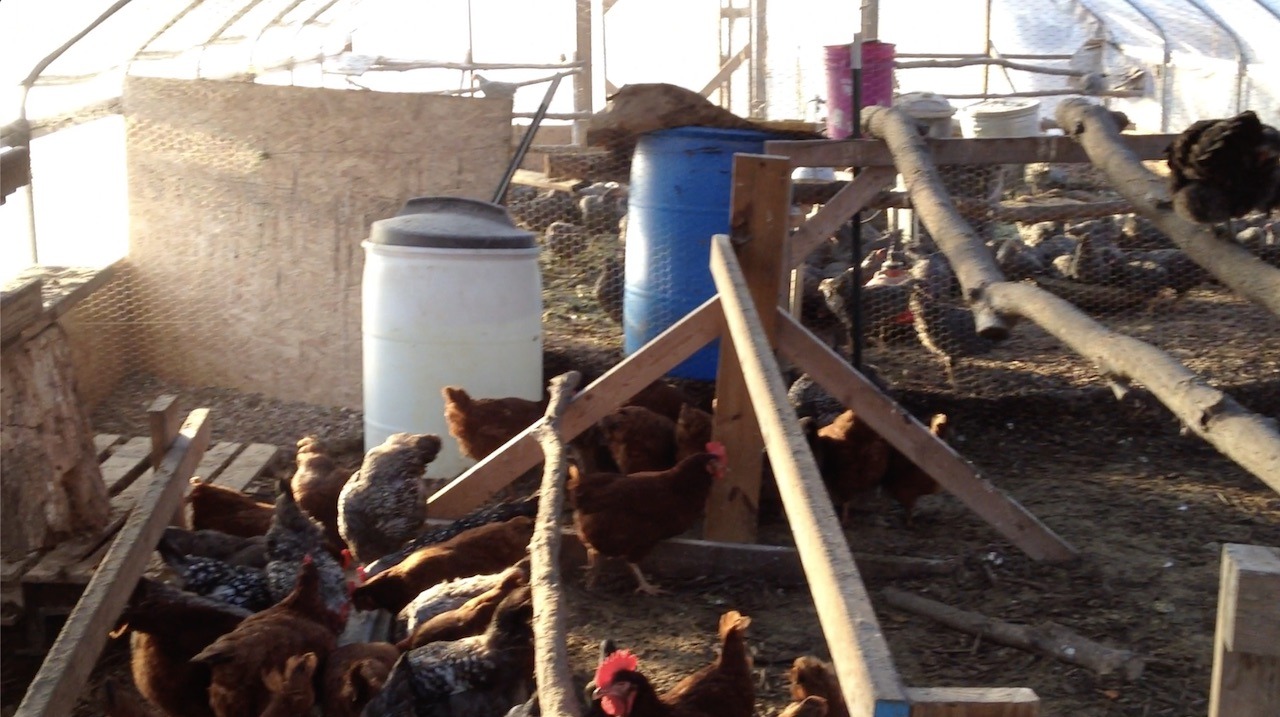
What else can chickens be used for?
One of the things I love about permaculture is the idea of looking at the animals on your farm as colaborers instead of just producers or products.
Chickens are really awesome at fertilizing land. By rotating our chickens, we let the chickens spread their manure fertilizer for us which creates better pastures and ultimately better soil.
Chickens are also great at pest control. Not only can they help keep pests under control near your home, they can also help control pests in your pastures, especially if you are grazing other animals there as well.
When you start thinking of chickens as colaborers, you can really start thinking outside of the box and utilize them in many different ways.
One example of this is that you can use chickens to heat your greenhouse. This also keeps your chickens warm in the winter and helps them to produce more eggs.
Also, did you know that chickens can be hypnotized? This is not really something useful but rather something that’s interesting, educational, and fun. Check out this article on How to Hypnotize a Chicken to learn how.
Conclusion
I really hope this guide has been helpful. Raising chickens can be one of the most rewarding things you do on your farm or in your backyard. My hope is that I’ve answered every question you have either in this guide or in the articles that I’ve linked to.
If I haven’t, please feel free to post questions and comments in the comments section below.

